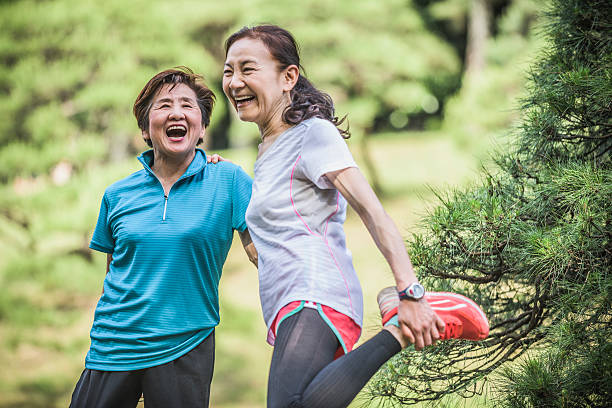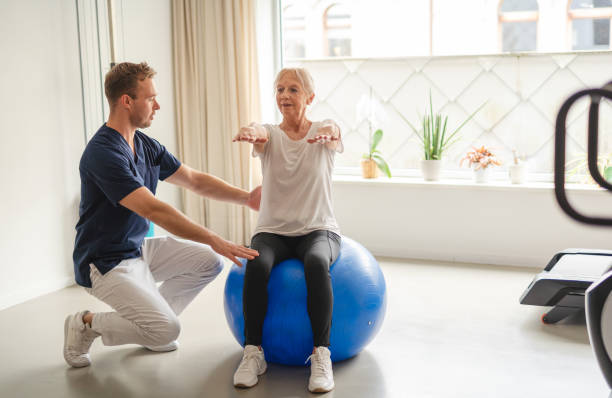As the global population ages, the importance of home health care for seniors continues to grow. With the right approach, seniors can maintain their physical health, mental acuity, and overall well-being without leaving the comfort of their homes. Whether you’re a caregiver, a family member, or a senior, understanding the key elements of physical and mental fitness in-home care can significantly enhance the quality of life.
Contents
- 1 The Role of Physical Fitness in Home Health Care
- 2 Nutrition: The Foundation of Physical Health
- 3 Mental Fitness: Keeping the Mind Sharp
- 4 Technology’s Role in Senior Health Care
- 5 Personalized Care Plans: The Key to Success
- 6 The Importance of Preventative Care
- 7 The Role of Caregivers
- 8 A Holistic Approach to Senior Health
The Role of Physical Fitness in Home Health Care
Physical activity is a cornerstone of good health for seniors. Regular exercise helps maintain mobility, strengthen muscles, improve cardiovascular health, and reduce the risk of chronic diseases such as diabetes, osteoporosis, and heart disease. It can also alleviate arthritis symptoms and help prevent falls, a leading cause of injury among older adults.
Here are some practical ways to incorporate physical activity into home health care:
- Daily Walks: Encourage short, consistent walks around the house or neighborhood. Even 20 minutes a day can improve circulation and joint flexibility.
- Chair Exercises: For seniors with mobility issues, seated exercises such as leg lifts, arm stretches, and light weightlifting can be effective and safe.
- Yoga or Tai Chi: These low-impact activities enhance balance, flexibility, and mental relaxation, making them perfect for seniors.
- Household Chores: Simple tasks like gardening, sweeping, or cooking can also contribute to physical activity while maintaining a sense of purpose and routine.
Home health care providers or family members can work with seniors to create a personalized exercise plan, ensuring it aligns with their medical conditions and abilities.
Nutrition: The Foundation of Physical Health
A balanced diet plays a vital role in keeping seniors physically fit. Home health care plans should include meal preparation that focuses on nutrient-dense foods, including:
- Fruits and Vegetables: Rich in vitamins, minerals, and antioxidants.
- Lean Proteins: These are fish, chicken, beans, and tofu for muscle maintenance and repair.
- Whole Grains: Brown rice, quinoa, and whole-grain bread provide sustained energy and digestive health benefits.
- Healthy Fats: These are found in nuts, seeds, and fish like salmon, and they support brain health.
Hydration is equally important. Seniors may be less likely to feel thirsty, so gentle reminders to drink water throughout the day can prevent dehydration.
Mental Fitness: Keeping the Mind Sharp
Mental health is just as crucial as physical health. Engaging in activities that stimulate the brain can slow cognitive decline and improve mood. Home health care should include strategies to nurture mental acuity and emotional well-being.
- Cognitive Exercises: Puzzles, crosswords, and memory games challenge the brain and promote problem-solving skills.
- Learning Opportunities: Encourage hobbies like painting, knitting, or learning a new language. These activities stimulate creativity and foster a sense of achievement.
- Social Interaction: Loneliness and isolation are common among seniors. Regular phone calls, video chats, or visits from family and friends can provide emotional support and reduce feelings of isolation.
- Mindfulness Practices: Meditation, breathing exercises, or listening to soothing music can help seniors manage stress and anxiety.
Technology’s Role in Senior Health Care
Advances in technology have made it easier than ever to support seniors’ health at home. Technology can be a valuable tool for home health care, from fitness trackers that monitor physical activity to apps that remind them to take medications. Video conferencing platforms allow seniors to stay connected with loved ones and access virtual healthcare services.
For mental stimulation, there are numerous online courses, brain-training games, and virtual social groups tailored to seniors. By embracing these tools, seniors can enjoy greater independence and improved quality of life.
Personalized Care Plans: The Key to Success

No two seniors are alike, and their care plans shouldn’t be either. Tailored home health care plans should address their unique physical, emotional, and social needs. Collaborating with healthcare professionals can ensure the right balance of exercise, nutrition, and mental stimulation.
- Health Assessments: Regular check-ins with a healthcare provider can help monitor chronic conditions and adapt care plans as needed.
- Goal Setting: Setting achievable goals—whether it’s walking an extra lap around the house or completing a puzzle—can provide motivation and a sense of accomplishment.
- Involvement of Family: Encouraging family members to participate in care routines can strengthen bonds and create a support system for seniors.
The Importance of Preventative Care
Preventative care is a proactive approach to maintaining health and well-being. It includes routine medical check-ups, vaccinations, and screenings. Home healthcare providers can help seniors manage these essentials by coordinating appointments and ensuring follow-through.
Additionally, preventative care involves creating a safe home environment. Reducing fall risks through modifications like grab bars in bathrooms, non-slip mats, and good lighting can significantly improve safety.
The Role of Caregivers
Caregivers, whether professional or familial, are the backbone of home health care. They provide not only physical assistance but also companionship and emotional support. Offering caregivers resources and training can ensure they are well-equipped to meet the needs of seniors.
A Holistic Approach to Senior Health
Home health care is not just about addressing immediate health concerns—it’s about creating an environment where seniors can thrive. By focusing on physical activity, proper nutrition, mental stimulation, and emotional well-being, caregivers can help seniors live fulfilling lives at home.
With the right strategies, seniors can remain physically strong, mentally sharp, and emotionally connected, ensuring their golden years are truly golden. Home health care isn’t just a necessity; it’s an opportunity to empower seniors and enhance their quality of life.

